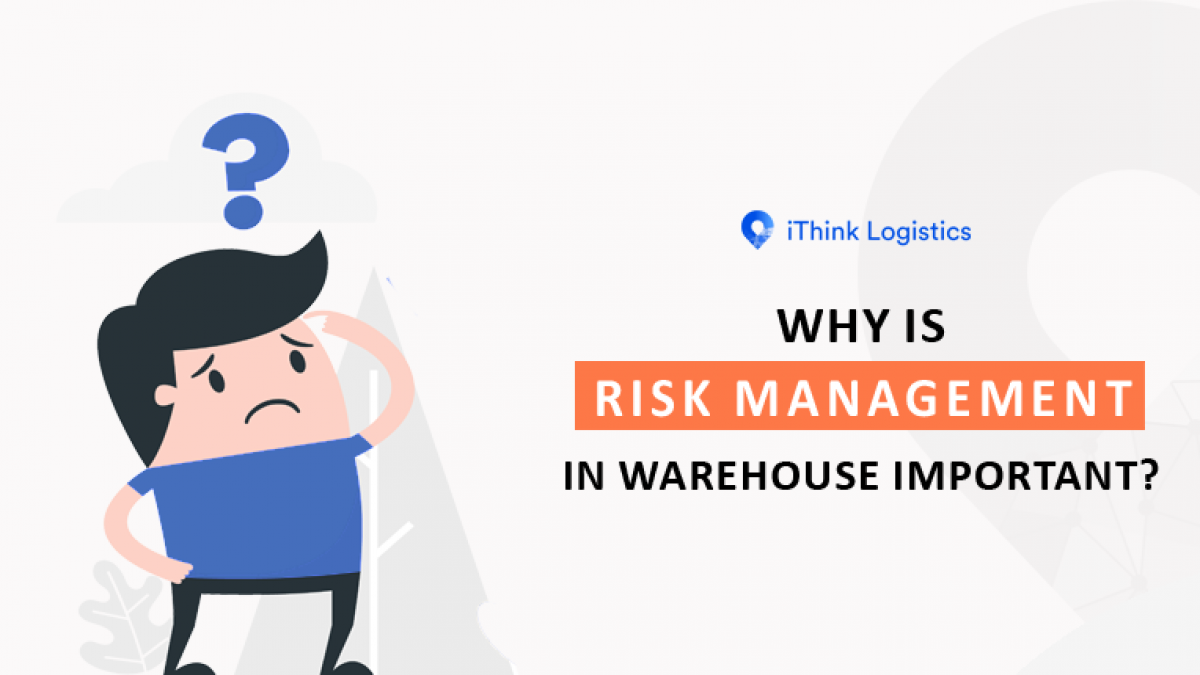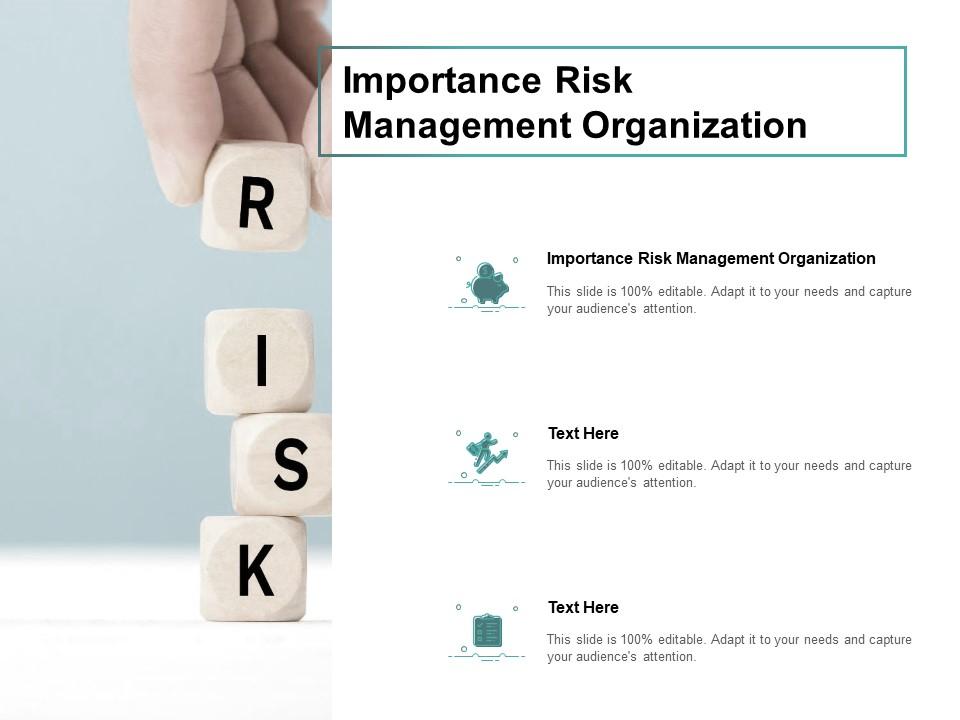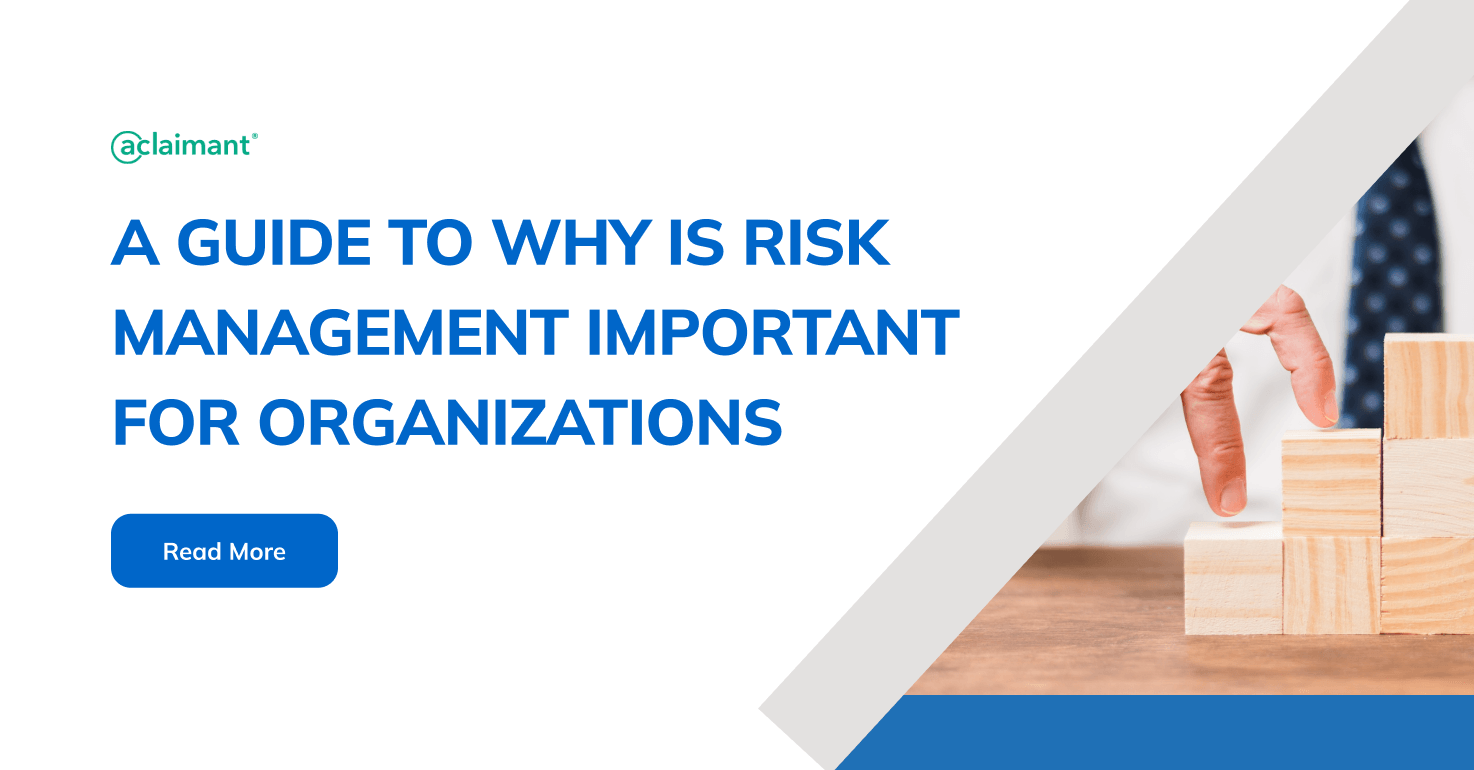Why Organizations Should Prioritize the Importance of Risk Management Now More Than Ever
Why Organizations Should Prioritize the Importance of Risk Management Now More Than Ever
Blog Article
The Importance of Understanding the Value of Risk Management in Different Industries

The Core Principle of Risk Management and Its Function
Risk Management, the keystone of lots of industries, hinges on the recognition, assessment, and reduction of uncertainties in a company environment. It is an integral technique that permits organizations to safeguard their assets, track record, and total survival. By properly determining potential dangers, organizations can establish approaches to either protect against these dangers from taking place or lessen their effect. The examination procedure entails assessing the likelihood and possible severity of these threats. As soon as threats have actually been recognized and assessed, the reduction procedure involves developing strategies to lower their possible effect. This process is recurring and cyclical, making sure that businesses are gotten ready for the ever-changing nature of Risk in different sectors. The key objective, hence, is to promote resilience in the middle of uncertainties.
Advantages of Carrying Out Risk Management in Organization Workflow

Revealing the Duty of Risk Management in Different Industries
While every industry faces its one-of-a-kind set of threats, the implementation of Risk Management methods continues to be an usual in their quest of sustainability and development. In the healthcare sector, Risk Management involves making sure client safety and security and information security, while in money, it involves mitigating financial investment threats and making sure governing compliance (importance of risk management). Building and construction business concentrate on worker safety, job hold-ups, and spending plan overruns. In the technology sector, firms reduce cybersecurity threats and technology obsolescence. Ultimately, the function of Risk Management throughout industries is to identify, assess, and mitigate threats. It is an important part of tactical planning, allowing companies to safeguard their try this web-site assets, make the most of chances, and accomplish their objectives.
Real-life Study Showing Successful Risk Management
To understand the value of Risk Management in these several fields, one can aim to a number of real-life instances that illustrate the effective application of these measures. For example, in the power industry, British Oil created Risk reduction prepares post the 2010 Gulf of Mexico oil spill. They implemented much better safety and security treatments and more stringent laws which significantly lowered further mishaps. In financing, Goldman Sachs successfully navigated the 2008 monetary crisis by identifying prospective mortgage-backed safeties threats early. Lastly, Toyota, publish the 2011 earthquake in Japan, changed its supply chain Management to reduce disturbance dangers. These situations show how markets, discovering from crises, successfully used Risk Management strategies to decrease future threats.
Future Trends and Advancements in Risk Management Methods
Cybersecurity, once a peripheral problem, has actually catapulted to the forefront of Risk Management, with methods focusing on response, discovery, and prevention. The assimilation of ESG (Environmental, Social, Administration) elements into Risk Management is an additional growing trend, mirroring the increasing acknowledgment of the function that social and environmental threats play in service sustainability. Hence, the future of Risk Management lies in the blend of sophisticated modern technology, cutting-edge methods, and an all look at more info natural strategy.
Verdict
In final thought, comprehending the value of Risk Management across a spectrum of markets is essential for their durability and prosperity. Eventually, effective Risk Management contributes to much more lasting and resistant services, highlighting the relevance of this practice in today's dynamic and highly competitive organization setting.
While every sector challenges its distinct set of dangers, the application of Risk Management methods stays a typical denominator in their pursuit of sustainability and development. In the medical care industry, Risk Management entails guaranteeing individual security and information defense, while in financing, it entails mitigating investment risks and making sure governing conformity. Ultimately, the role of Risk Management across industries is to identify, examine, and alleviate risks. These cases show exactly how industries, finding out from situations, efficiently used Risk Management strategies to reduce future risks.

Report this page